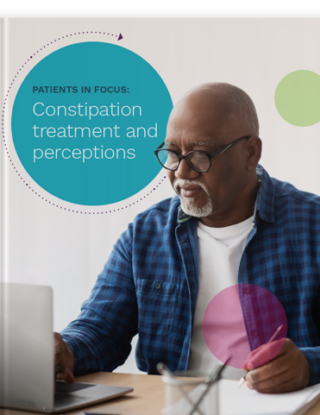Constipation affects millions of Americans, and there are good reasons to believe that number is rising as the condition is more common among older adults who experience age-related issues including decreased mobility, various comorbidities and increased use of medications that cause constipation. Yet, the market for prescription constipation therapies remains underdeveloped while patients turn to over-the-counter medications that are not meant for long-term use.
The prevalence of constipation—and its impact on patients’ daily lives—suggest there’s room for drugmakers to increase constipation medication uptake in the coming years. But what marketing strategies and messaging can improve constipation patient education to help enable that growth?
Our latest report will explore key constipation research findings derived from Phreesia PatientInsights survey results collected in October and November 2021 from 6,780 adults diagnosed with or treated for constipation checking in for their doctor’s appointments. Read the report to find out which patients are not currently using prescription constipation options and why, as well as how pharma marketers can increase uptake of these treatments.
Report highlights include:
- 1 in 2 patients said they experience constipation symptoms all or almost all the time
- 62% of patients reported that constipation has a moderate or great impact on their everyday life
- 41% of patients said they brought up their constipation symptoms to their doctor in fewer than 1 in 4 appointments
- Although 90% of patients said they understood that over-the-counter constipation drugs are not meant for long-term use, half of them (50%) also said they have taken an OTC constipation medication for more than a year
- 54% of patients could not recall a single prescription brand in the category



